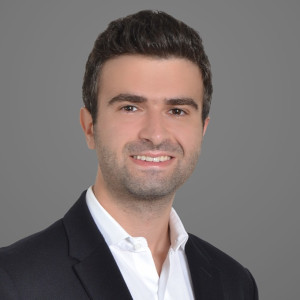Hi guys, I'm really struggling to prep for a final partner interview, which will be a fit + verbal case interview. Would anyone be willing to give tips and perhaps help me practice?
Final Case interview - Verbal Case Interview


Hi there,
Q: I'm really struggling to prep for a final partner interview. Would anyone be willing to give tips and perhaps help me practice?
The final round should have the same structure as previous ones (fit + case+ your questions); however in a final round, partners may:
- Spend more time on fit questions and your alignment with the company.
- Check more closely your communication (eg how you react to challenging questions).
- May not have a “proper” structured case to present – during one of my finals I had one interview which was made by two market sizing questions and a brainteaser, without any business case. That's because during the final they know you can structure and crack a case (you passed 1 or 2 rounds already) and are more interested in your logic, personality and fit with the company.
So in order to prepare I would concentrate on the following:
- Review in detail your fit stories – they could matter more than in the first round. In some finals I had almost exclusively behavioral questions.
- Work on your communication (reaction under pressure, how to gain time when you do not have a structure ready, connect with the interviewer, etc). This is something you can do almost exclusively in mock interviews with others.
- Prepare cases as you did for the first round. If you got feedback on a specific area, focus more on that part.
Extra reading:
Good luck!
Francesco

Hey there,
Congrats on passing the first round!
95% of partner rounds are just as standardized as the first round, yet be prepared to expect everything. Sometimes they are more conversational and friendly, only with light-touch evaluation, other times they are more challenging. Usually, they are the same.
The reason why you read about freestyle partner experiences is that they deviate from what people expect, hence they post about it more frequently online, hence giving others the impression it is much more common.
Additionally, partner rounds are often perceived as more challenging, just because it's a partner sitting across the table rather than a more junior colleague. It is purely based on the impression and not on the content. :-)
If there are any deviations from the standard interviewer guidelines, expect them to be in the following realm:
- Focus on one or two areas where you were perceived as not as strong in round one, which can be specific case questions or fit questions (or PEI for McKinsey)
- Only doing a case, only doing fit instead of both
- Doing two shorter cases in quick succession
- Challenging your answers more
- Not providing any time for you to think about the answer, making it more conversational
In any case, the most important thing is not to be startled by this and just keep working on the case and fit in a calm manner.
If it's for McKinsey, have a look at the following two articles that I wrote:
Case: https://www.preplounge.com/en/mckinsey-interview
PEI: https://www.preplounge.com/en/mckinsey-pei
All the best for your second round!
Cheers,
Florian

Hi there,
congrats on getting to the last round, step with the highest chances (approx. 40%) of all steps so far :-)
I would recommend:
1. FIT: Make sure you have your story ready for any common type of questions, you feel comfortable with them and they transmit all the key capabilities the firm look for. I would recommend testing with someone who has a completely different background to see if they understand what you want to say
2. practice and drill the cases, be familiar with the different possible approaches, understand what is the key question, etc.
3. Don't stress out.
You can mock the interview with peers and eventually invest in an hour with a coach.
All the best!
Lucie
Was this answer helpful?

Hey there,
Happy to chat and help you practice.
If you made it this far, it means you're good with cases and you also manage to tackle fit questions. You'll need to stick to the same method when it comes to Partner interviews, keeping in mind that:
- Partners would like to see in you a future consultant they would put in front of clients. Show confidence, maturity and assertiveness.
- Cases might not differ much from what you practiced, but some might be shorter and a bit more strategic/conceptual than detailed and analytical.
Happy to chat more as needed.
Mario

Congratulations!
In many processes, you've got the hardest part behind you.
Partners are the final filter to confirm that you fit into the culture under their purview, can think on your feet and that you are presentable internally and externally.
I have heard about and seen situations where the partner actually didn't care much about giving a case to the candidate because solving cases had already been tested sufficiently leading up to the final partner interview. The meeting turned more into a discussion about the industry area the partner was focused on.
This is not to say that you won't be cased in your interview - just providing some additional perspective.
Feel free to reach out if that would be helpful

Hi there,
If you really want the best tips and you'd like to maximize your chances of suggest, coaching is honestly the way to go - nothing beats a direct, honest case assessment from an expert.
Here's some case reading to help you: https://www.preplounge.com/en/articles/how-to-shift-your-mindset-to-ace-the-case
And some fit reading: https://www.preplounge.com/en/articles/tell-me-about-yourself-interview-question

Congratulations on getting through to the second round! As others have said generally the partner interviews are just as standardized as the first round interviews. Every now and then you'll get a partner who does something a bit different, but that is quite rare. By getting through the first round the panel thought that you ‘met the bar’ for performance - you should take a lot of confidence from that and continue to prepare in the way in which you have!
Good luck!

In Preplounge you have either coaches (who will provide you services), materials that you can purchase (usually done by coaches) also some free resources (check “Resources” tab up there) and finally peers who are still practicing for interviews (who are unlikely to be of great help in this specific topic, although just trying your answers “live” with someone can help you a bit. I just wouldn't expect feedback to be very useful).

Happy to help you practice.
Best,
Maikol
















